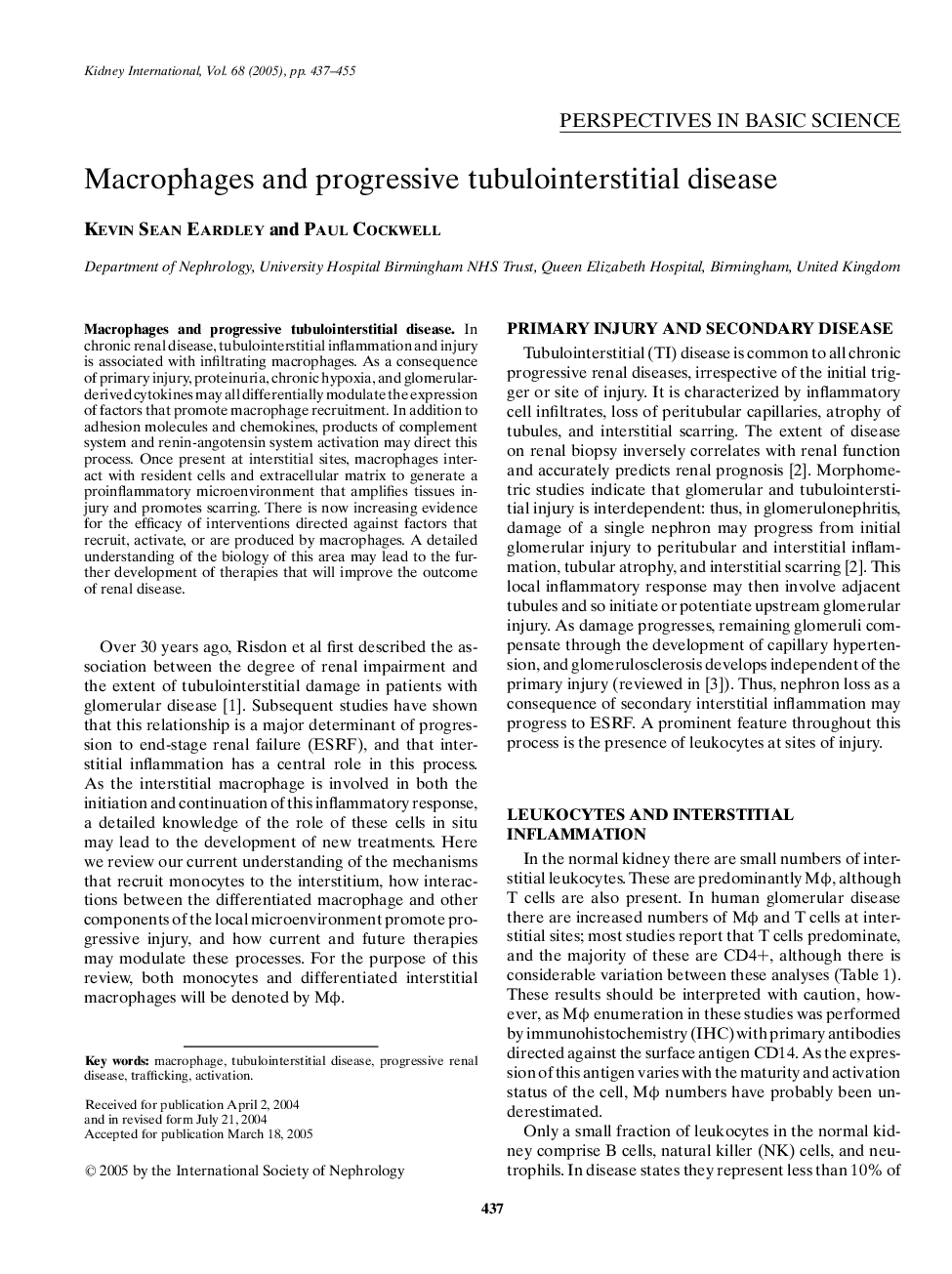| Article ID | Journal | Published Year | Pages | File Type |
|---|---|---|---|---|
| 9308404 | Kidney International | 2005 | 19 Pages |
Abstract
Macrophages and progressive tubulointerstitial disease. In chronic renal disease, tubulointerstitial inflammation and injury is associated with infiltrating macrophages. As a consequence of primary injury, proteinuria, chronic hypoxia, and glomerular-derived cytokines may all differentially modulate the expression of factors that promote macrophage recruitment. In addition to adhesion molecules and chemokines, products of complement system and renin-angotensin system activation may direct this process. Once present at interstitial sites, macrophages interact with resident cells and extracellular matrix to generate a proinflammatory microenvironment that amplifies tissues injury and promotes scarring. There is now increasing evidence for the efficacy of interventions directed against factors that recruit, activate, or are produced by macrophages. A detailed understanding of the biology of this area may lead to the further development of therapies that will improve the outcome of renal disease.
Related Topics
Health Sciences
Medicine and Dentistry
Nephrology
Authors
Kevin Sean Eardley, Paul Cockwell,
